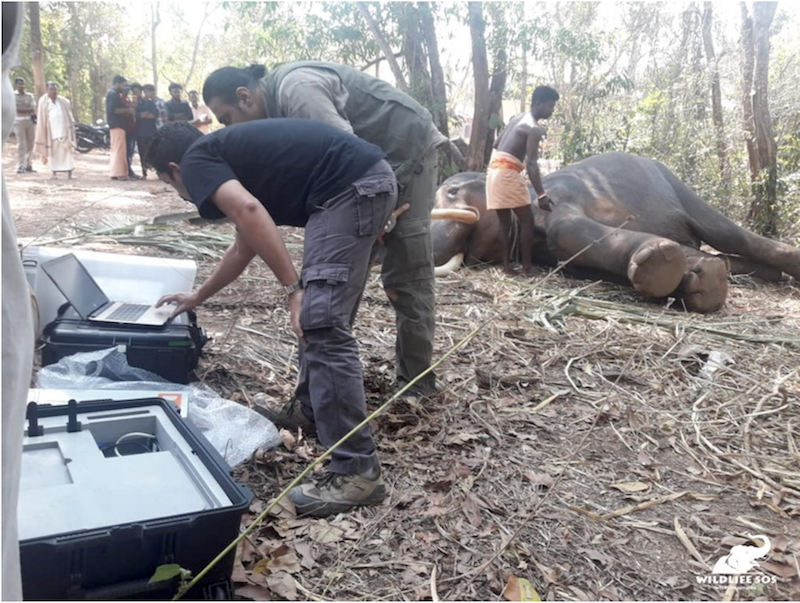The Lesniak Institute for American Leadership files suit vs. The Garden Bros. Circus and a delay in passing Nosey's Law in New Jersey, illegal wildlife trade, Selling Baby Elephants, Olivia Mufute, African Wildlife Foundation’s Country Manager of Zimbabwe in today's Elephant in the Room!
|
|
|

When Senator Lesniak left the New Jersey Senate in January, he was concerned the Legislature would no longer have a champion to protect animals from cruelty and extinction.
It’s no longer a concern.
Senator Nidia Cruz-Perez and Assemblymen Raj Mukherji, Dan Benson, Andrew Zwicker have picked up the mantle. Last year, Governor Christie vetoed his legislation banning wild animals in circuses and fairs. It was named after Nosey – the elephant who has finally won freedom from the cruelty of circus performing.
Nosey’s Law passed the Senate by a 37-0 vote but lobbyists were successful in delaying an Assembly vote until November. Senator Lesniak informed every member of the Assembly we’re not going away on Nosey’s Law or on any initiative to make New Jersey – The Humane State.
Senator Perez has also championed legislation granting immunity for saving a pet left in a heated car.
Our champions need your help to pass Nosey’s Law, stop Bear Hunting, Ban Leghold Traps, Puppy Mills, and Shark Finning and to improve New Jersey’s animal shelters, some of which should be shut down. We also will advocate for humane treatment of animals throughout the nation and in countries across the globe.
Help make New Jersey – The Humane State and also advocate for other states and countries to make America and the world of nations more humane.
After a long day of travel from the Wildlife SOS Elephant Hospital in Agra, our veterinary team arrived in Kerala to treat a young elephant who was down on the ground, unable to bear weight on his front limbs. The team came fully prepared with a set of diagnostic and treatment tools.
X-rays of his front leg revealed that a joint was abnormally fused, a condition called ankylosis. Thermal imaging also revealed that the bull, despite his young age, was suffering from severe osteoarthritis. The two diagnoses meant that undertaking the long journey to the Elephant Hospital would be too traumatic. Instead, our team recommended he be helped on-site by retiring him immediately from his duties as a temple elephant, removing his heavy chains, and creating a hydrotherapy pool for him to use regularly.
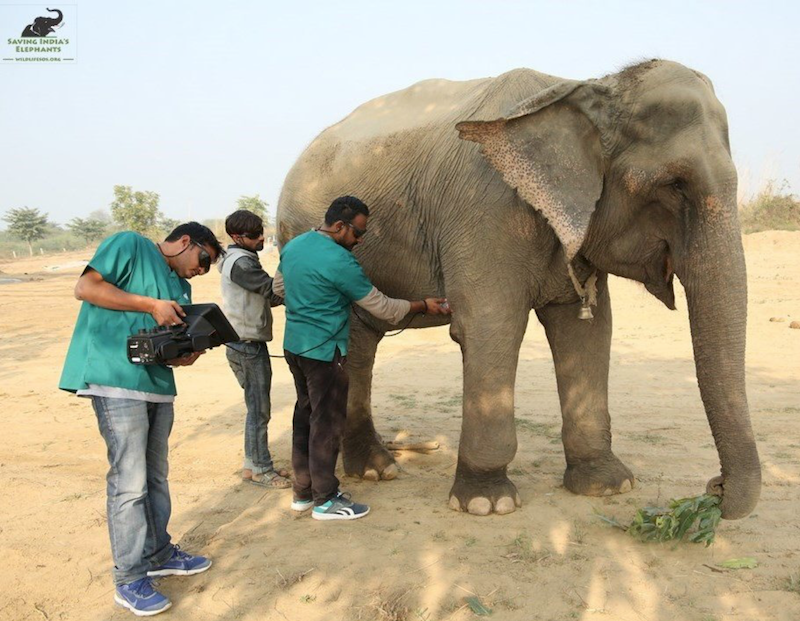
Holly receiving treatment at ECCC. Two sets of equipment would allow for Elephant Hospital treatments to continue even when a team is on the road.
|
Tragically, India has no shortage of captive elephants in need of veterinary care. This elephant's story is just one example of the many times we are called on each year to treat elephants in the field.
But each time our mobile diagnostic and treatment tools are taken on the road, our hospital has to get by without that critical equipment. Your gift today could help us purchase a second set of medical tools, specifically for use in the field.
|
Selling
Baby Elephants is a Conservation Scam. Thirty-five
infant and juvenile elephants have been torn from their mothers and families in
Zimbabwe and are now in transit to zoos in China. As for the profit from these
stolen lives? It will go to fund sham conservation. READ
MORE
Strengthening Africa’s criminal justice systems to fight illegal wildlife trade
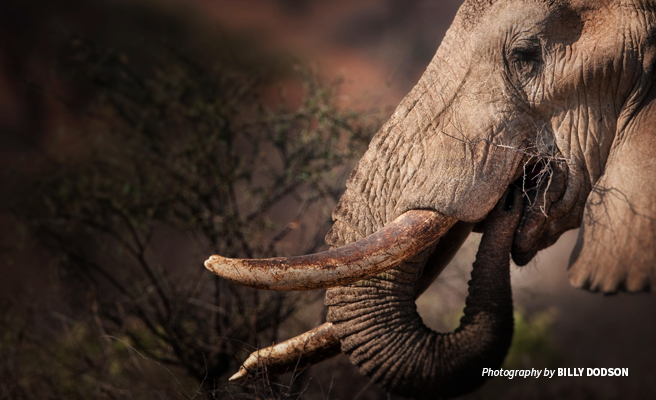
Driven by international poaching syndicates as well as local bush meat hunters, the illegal killing, trading, and trafficking of wildlife and wildlife products keep African species at risk. Learn from Didi Wamukoya, African Wildlife Foundation’s Senior Manager, Wildlife Law Enforcement, why the continent needs watertight investigative, prosecutorial, and judicial processes — coordinated across regions — to adequately protect its wildlife.
How did AWF respond to the upsurge in poaching?
Though we had been battling the wildlife trade for many years, we escalated our efforts in 2014 to reverse the drastic population declines suffered by Africa’s iconic elephants and rhinos. We launched emergency initiatives targeting priority wildlife populations and wildlife trafficking hotspots in each region — Kenya, Uganda, Tanzania, and Ethiopia in eastern Africa; Democratic Republic of Congo and Cameroon in central Africa; as well as Botswana and Mozambique in southern Africa. In these high-risk sites, we deployed a comprehensive intelligence-led strategy to support national wildlife authorities tackling armed poachers, partnering with communities and organizations to stem the illegal killing. Authorities also needed to improve detection of illegal wildlife products being smuggled through borders and ports — we have helped train and deploy canine detection units at major air and sea transport hubs in Kenya, Uganda, and Tanzania since 2012.
Why did AWF prioritize law enforcement in the fight to stop the killing and stop wildlife trafficking?
We embarked on a dynamic program to strengthen wildlife law enforcement in these countries because prosecuting poachers and traffickers deters further crimes against wildlife. Starting in 2015, the program focuses on building the capacity of wildlife law enforcers including investigators, prosecutors, and judicial officers. Ultimately, we want to enhance communication and collaboration between law enforcement agencies to increase their success in apprehending violators. Improving interagency coordination is especially important across country boundaries if we want to deliver a robust response to this complex and ever-changing transnational crime. We also continue to devote significant resources to stop the demand of ivory and rhino horn through awareness-building campaigns in local markets as well as consumer countries.
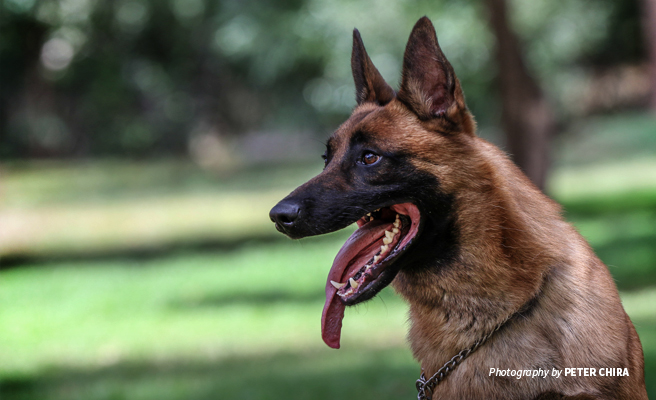
What are some of the factors impeding wildlife law enforcement in AWF’s partner countries?
Wildlife crimes are by nature, environmental crimes. In most jurisdictions in Africa, these crimes are regulatory and therefore quasi-criminal in nature — they are similar to traffic offenses. There is no moral stigma attached to persons convicted of such crimes, which only gives offenders the courage to continue committing them.
Adequate enforcement is also hampered by weak legislation. This could be a result of poor legislative drafting, low penalties, or minimal enforcement powers in the law. Unfortunately, well qualified and experienced judicial officers, prosecutors, investigators — and even rangers on the ground — lack requisite knowledge on the laws they are supposed to be enforcing. At the same time, decision-makers and community members have a limited awareness of the contents of wildlife legislation.
Concerning case management, we found that exhibit storage rooms for seized wildlife contraband are disorganized, unsanitary, and not well maintained making it difficult to trace and to track the evidence crucial to many cases. Further, there were no proper evidence tracking and management systems in place, which is a danger as wildlife products that have been seized and removed from circulation in the illegal markets, can easily find their way back.
How does AWF address the gaps to improve wildlife policies and laws?
We begin with detailed analyses of wildlife policies and legislation as well as supporting legislation to understand their provisions regarding enforcement structures, offenses, and penalties. Importantly, we check that the laws meet recommended international standards. So far, we have produced comprehensive analysis papers on Botswana, Cameroon, DRC, Ethiopia, Kenya, Mozambique, South Africa, Swaziland, Tanzania, and Uganda.
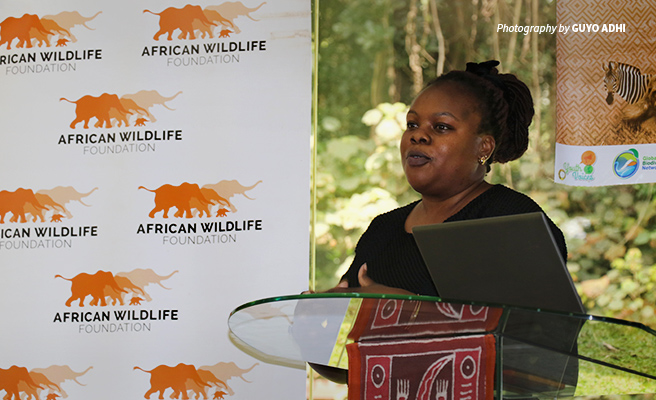
How does AWF then help officials successfully prosecute wildlife crimes?
We organize Wildlife Judicial and Prosecutorial Assistance Training sessions in each country to enhance participants’ skills and competencies on administration and adjudication of wildlife cases. We have held 33 such trainings since 2015, reaching 1189 officials from 15 countries — wildlife crime prosecutors, investigators and judicial officers, as well as wildlife protection rangers, customs officers and port authorities. The first training we hold in a country is meant to facilitate an initial meeting between relevant agencies to break the ice, understand the law, and get a broad perspective of the extent and nature of wildlife crimes in a their country so that we can find appropriate solutions.
During our interaction with participants at these trainings, we realized one gap that was weakening the wildlife crime prosecutors’ cases. This was the poor quality of testimony given by witnesses in court. Law enforcement officers including wildlife rangers, dog handlers, and community scouts are bound to go to court as witnesses in wildlife cases. Unfortunately, their field training does not prepare them for their role as witnesses in criminal trials. They struggle to record their own witness statements, understand court procedures, and often crumble under cross-examination. We addressed this gap by introducing a training module that helps build the confidence of these officers when they are testifying in court. They also learn about the identification and production of exhibits in court.
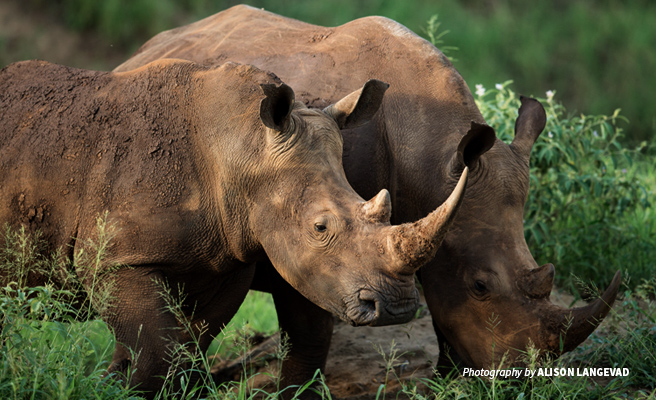
How do law enforcement officers maintain improved standards after AWF training?
We have developed a unique year-long mentorship program that pairs prosecutors working on particularly challenging wildlife crime cases with experienced lawyers from their countries to support them. Our first On the Job Training is currently taking place, targeting prosecutors from Kenya, Uganda, Tanzania, and Ethiopia.
We also develop educational materials to assist wildlife crime prosecutors and investigators as they encounter challenges on the ground. We regularly update and distribute practical manuals, handbooks, and guidebooks focused on investigation and prosecution of wildlife crimes.
AWF also routinely upgrades investigation equipment for teams in poaching hotspots. For example, in Tsavo, we issued basic scene-of-crime processing kits and GPS-enabled digital cameras to Kenya Wildlife Service officers. We also try to enhance use of science including DNA forensics in resolving wildlife crimes. To this end, we have procured DNA forensic sample collection kits and laboratory reagents to support the Kenya Wildlife Service Forensic and Genetics Laboratory.
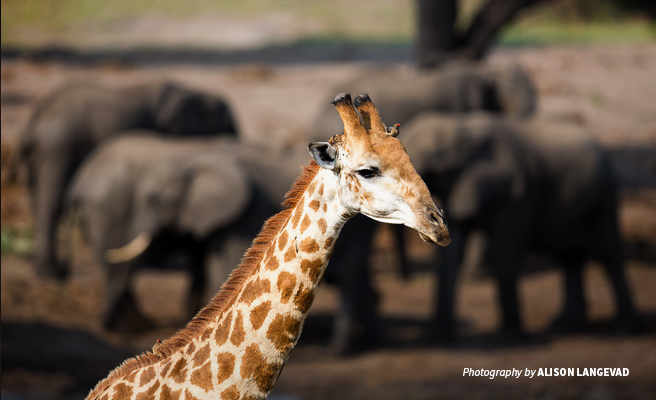
What other techniques does AWF use to support wildlife law enforcement? Does AWF use forensics or any new technologies?
Yes, our support often goes beyond the agency’s daily law enforcement routine. We partner with the relevant law enforcement agencies to fund their special operations targeting key species or rampant crime while also covering the entire spectrum of wildlife law enforcement — from intelligence-gathering to investigation and prosecution of offenders.
The first special operation we supported investigated the illegal bush meat trade in Kenya. KWS investigators collected meat samples from butcheries as well as local unlicensed meat dealers in the Tsavo landscape. The meat samples were taken to the KWS Forensic and Genetics Laboratory for DNA analysis. The study revealed that wildlife including buffalo, dikdik, hare, Grant’s gazelle, impala, and — shockingly — giraffe were being sold to unsuspecting consumers. Though the investigation is ongoing, two suspects were arrested for dealing in bush meat. One suspect pleaded guilty and received a fine of US $400. The other suspect pleaded not guilty and his case is still pending before court.
Monitoring such cases is critical in strengthening prosecutorial and judicial capacity to deliver watertight sentences that keep wildlife criminals behind bars and deter others from taking part in the illegal wildlife trade. We have also launched a new partnership with Irdeto, a leading digital security firm, to address wildlife cybercrime. Through Irdeto’s targeted cybersecurity technologies and expertise, we will work together with relevant law enforcement agencies to investigate and the illegal trade in wildlife and wildlife products on the internet. Information obtained will be shared with the law enforcement agencies to enable them arrest criminals trading in illicit wildlife products online.
Olivia Mufute, African Wildlife Foundation’s Country Manager of Zimbabwe, is creating the foundation for a new and better future for Zimbabwe’s wildlife while at the same time championing women’s role in conservation.
“Traditionally, women have played a key and active role in natural resources management, however, there is a domination of men in leadership positions,” says Mufute, who spent much of her early career in conservation overturning long-held gender norms. For the very first time, women will join a team of community scouts patrolling the Lower Zambezi Valley to mitigate poaching and human-wildlife conflict. The program, led by Mufute, is paving the way for rural women in Zimbabwe, and all of Africa, to have a seat at the conservation table. By promoting greater inclusion, representation, and participation of women in wildlife conservation, Mufute is building resilience in an often overlooked and vulnerable demographic. “Conservation has the potential to uplift and empower rural women in Zimbabwe,” says Mufute. Read about Mufute’s vision for conservation
“Traditionally, women have played a key and active role in natural resources management, however, there is a domination of men in leadership positions,” says Mufute, who spent much of her early career in conservation overturning long-held gender norms. For the very first time, women will join a team of community scouts patrolling the Lower Zambezi Valley to mitigate poaching and human-wildlife conflict. The program, led by Mufute, is paving the way for rural women in Zimbabwe, and all of Africa, to have a seat at the conservation table. By promoting greater inclusion, representation, and participation of women in wildlife conservation, Mufute is building resilience in an often overlooked and vulnerable demographic. “Conservation has the potential to uplift and empower rural women in Zimbabwe,” says Mufute. Read about Mufute’s vision for conservation
Vital conservation programs that protect tigers, elephants, rhinos, and countless other species need your help. Many of these species are already on the edge of extinction and U.S. government programs that help conserve wildlife are under threat from the budget proposal released by the Administration this week.
Please join the New York City Bar Association's Animal Law Committee for Endangered Species Act Under the Trump Administration.
When: March 28, 2019 from 6:30 to 8:30 pm
Where: New York City Bar Association
42 West 44th Street, New York, NY 10036
This panel, featuring Animal Legal Defense Fund Staff Attorney Daniel Waltz, will cover key regulatory and legislative changes to the Endangered Species Act under the Trump Administration including: new standards and rules, removal of species from protection, reduction of funding for certain initiatives, trophy hunting, and ivory trade.

